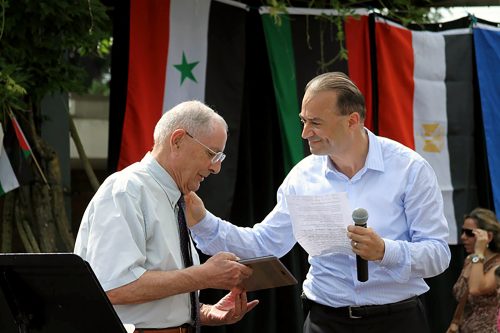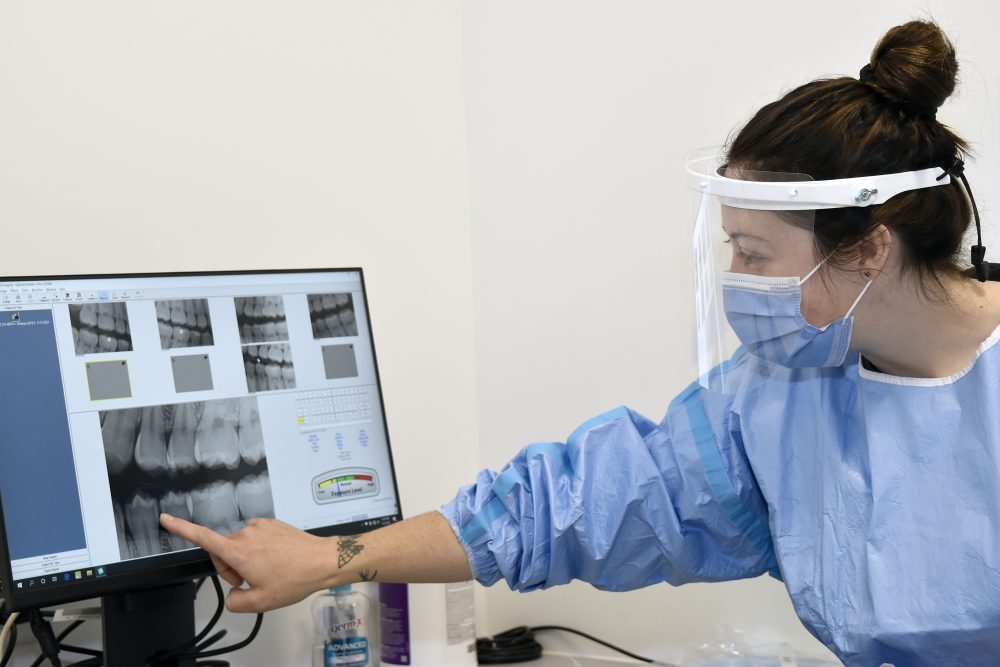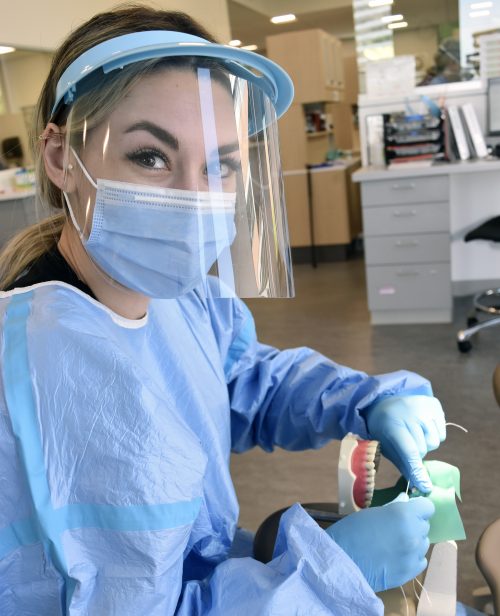This content was published: March 28, 2022. Phone numbers, email addresses, and other information may have changed.
Local dentist, community leader says PCC is key in bridging industry workforce gap
Photos and story by Celina Baguiao
When you look for dental assistant jobs in the State of Oregon Employment Department, there are 60 open positions in the state. Compare that to the 30 dental hygienist listings and the 16 dentist job announcements.
In Oregon, and much like the rest of the country, there is a workforce shortage of dental assistants that is crippling the industry. Portland dentist and Portland Community College graduate Dr. Hadi Nouredine said he’s never seen a shortage of dental assistants as he has recently. He called it unprecedented.
“I have had to see fewer patients and decrease days and hours for my employees,” Dr. Nouredine explained. “We are trying to get by and survive.”
Dr. Nouredine, who is the founding doctor of Family Dental Care, currently employs about 35 dental assistants but is looking for more. His job announcements have gone unanswered.

Late Oregon Governor Victor Atiyeh (left) with Dr. Hadi Nouredine, who said PCC’s dental programs are critical for building the dental workforce.
“There are not enough applicants or schools,” said Dr. Nouredine, who has practiced for 31 years. “Employment, in general, has suffered recently.”
According to the ADA Health Policy Institute in a national poll from May of 2021, 35.8 percent of dentists were recruiting dental assistants, representing a rise in recruitment since October 2020. The assistant deficit was prevalent before the COVID-19 pandemic and the PCC Dental Sciences Program is trying to help address the shortages with industry support.
“There always has been a need for dental assistants,” said PCC instructor Peggy Lewelling. “I’m not sure that there was an awareness of the dental assisting programs that are available and the needs of the industry. As long as I can remember, you can always find a job ad for a dental assistant. Once COVID started, I think it got drastically worse.”
PCC’s Dental Assisting Certificate is a nine-month program designed to help students learn the skills needed to quickly enter the workforce. Once in the office, assistants help with a variety of job duties including clinical laboratory work, sterilization, patient care and recordkeeping.
“Dental assistants are the most important people in my office,” Dr. Nouredine explained. “Everyone is important but my assistant is my right hand. It’s unbelievable the duties that they are able to do.”
According to the Oregon Employment Department, Portland area dental assistants earn up to $28.97 per hour. Dr. Nouredine currently has long-standing assistants on his team, but that’s not without pay increases and bonuses. Depending on experience, he has seen the pay of his employees increase by nearly 25%.
When the pandemic started, the full-time PCC cohort of 43 students was only a few months away from finishing up their hands-on training. Staff worked hard to help the students complete the required externships at local dental offices and wrap up their certificates by the end of summer 2020, a mere one term later than usual.
The effort to train the new generation of dental professionals aligns with PCC’s 2020-2025 Strategic Plan. In the plan, the college is committed to responding to community and workforce needs by growing programs that lead to living wage jobs via industry partnerships and supporting career readiness.
Knowing that there’s a large need for more dental workers before COVID, PCC began working on increasing its full-time program to accept 60 students, instead of 45, and they started creating a new cohort for part-time students. This new group of 18 aspiring assistants will begin their studies this spring.
Industry partners have stepped up as well. Willamette Dental Group, a longtime supporter of PCC’s dental sciences, joined the Skourtes Institute to donate $1 million to create the PCC Willamette Dental Group Endowed Dental Sciences Scholarship through the PCC Foundation. This scholarship funds students in the Dental Assisting Certificate, especially those who have worked in a dental practice for six months or more and want to advance in their careers to become dental assistants.
While the college continues to grow its program with the help of scholarships and larger cohort sizes, Dr. Nouredine continues to search for qualified dental assistants. He believes that the state needs to step up and help address the workforce need.
“There’s only one of me,” Dr. Nouredine noted. “And there are five dental assistants. That just shows how crucial this job is to our office.”


